Every major A&E misses wait target for first time
- Published
- comments
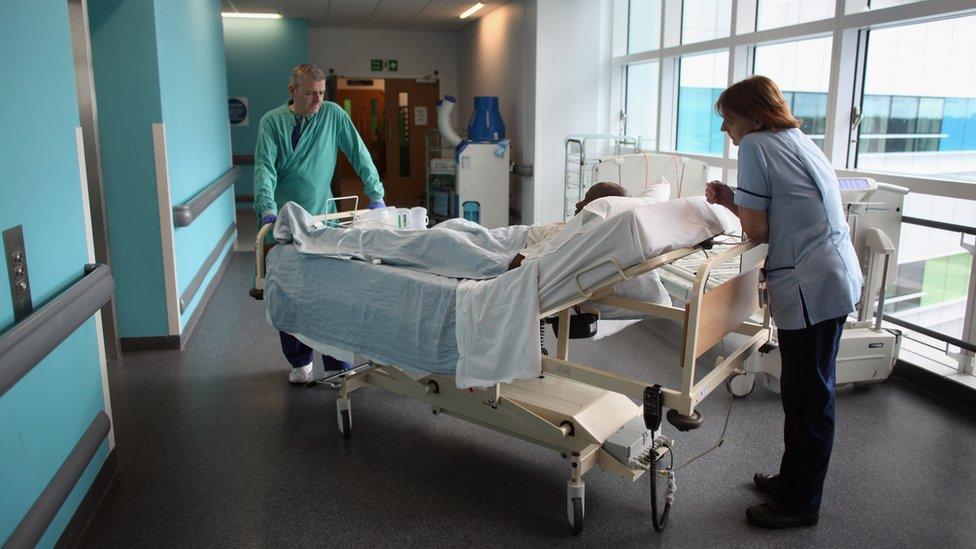
Every major A&E unit in England has failed to hit its four-hour waiting time target for the first time, NHS figures show.
All 118 units fell below the 95% threshold in November as the NHS posted its worst performance since targets were introduced more than a decade ago.
Alongside the growing waits in A&E, the data showed there were record delays finding beds for the sickest patients.
The numbers on waiting lists for routine care also hit an all-time high.
NHS England medical director Prof Stephen Powis said the NHS was facing a "very tough few months".
He said staff were "pulling out all the stops" but added that increasing demand, particularly among patients with complex illnesses, and a shortage of staff were making it difficult.
Nigel Edwards, of the Nuffield Trust think tank, said the figures were "very worrying" as the coldest months were still to come.
He said: "Returning to Downing Street, Boris Johnson has been met by an immediate reminder of the grim winter his government faces in the English NHS."
Worst ever month for A&E
Overall just 81.4% of A&E patients were seen within four hours last month - that is the worst performance since the target was introduced in 2004.
The figures include those seen in major A&E units, as well as minor-injury units and walk-in centres.
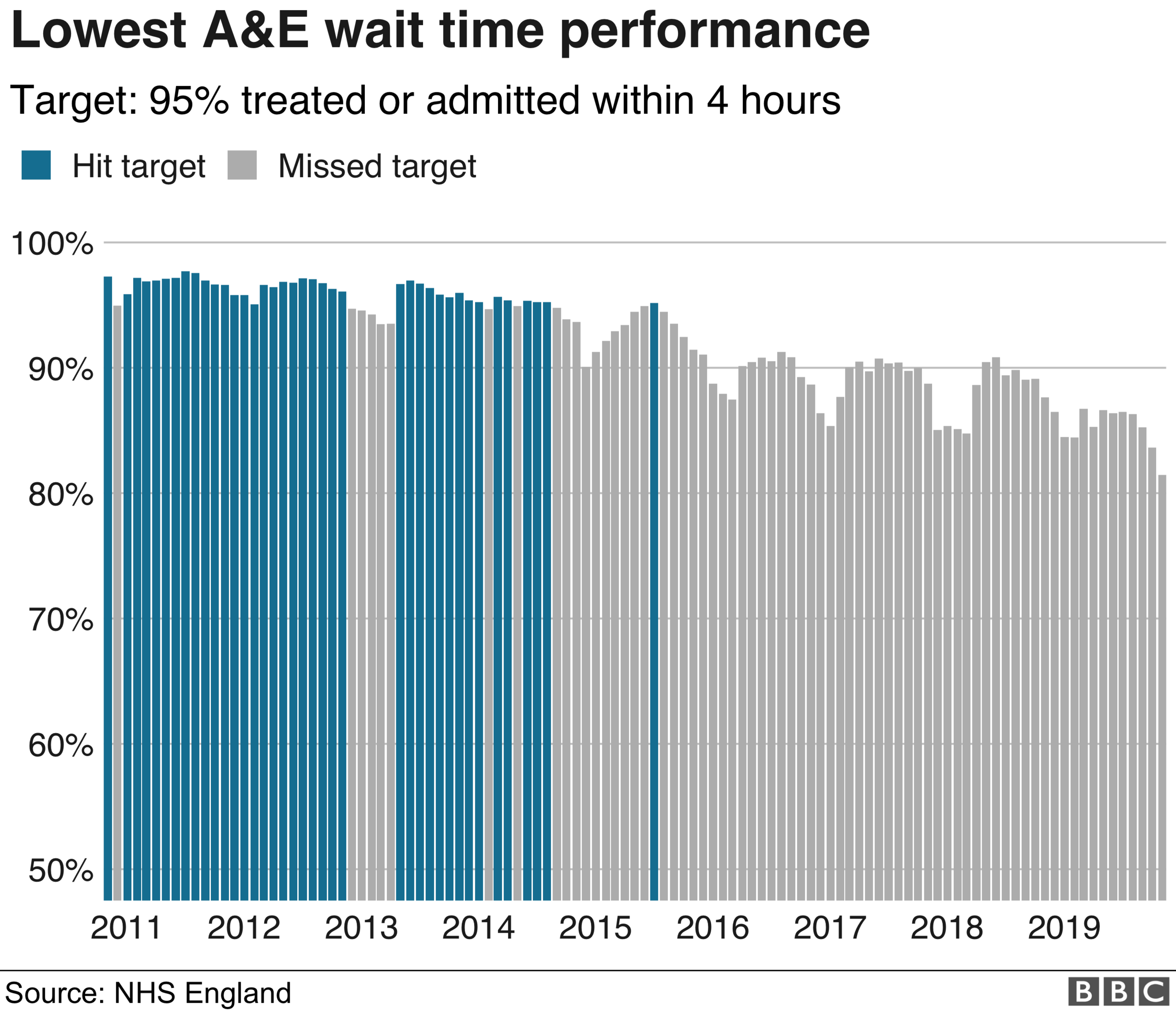
Of the 118 major units, not one managed to treat or admit 95% of patients in four hours - the target threshold.
That has never happened before.
However, for most of this year the figures have not included the performance of 14 trusts that are piloting a new way of recording waits. A few of these are among the traditional top performers.
What is more, A&E units reported they were facing increasing problems finding beds for the sickest patients.
Close to 90,000 patients waited more than four hours for a bed to be found in November - nearly double the number from two years ago and the highest on record.
This is after any wait patients have had in A&E.
More than 1,000 patients waited more than 12 hours.
What about the other targets?
The data, released on Friday, also covers waits for cancer treatment and non-emergency treatment such as knee and hip replacements.
It came out a day later than normal, because the UK Statistics Authority ruled no official figures could be released on polling day.
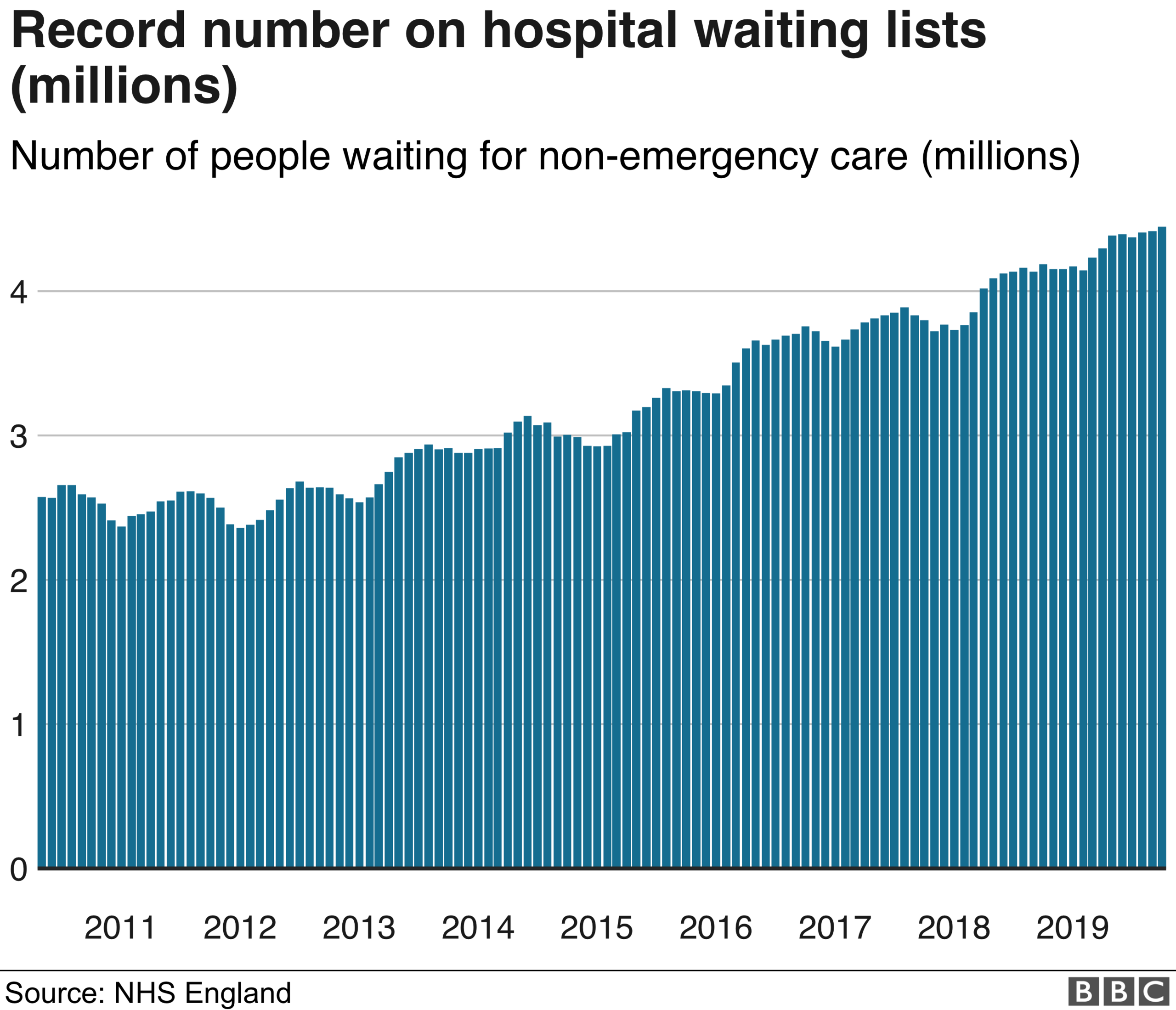
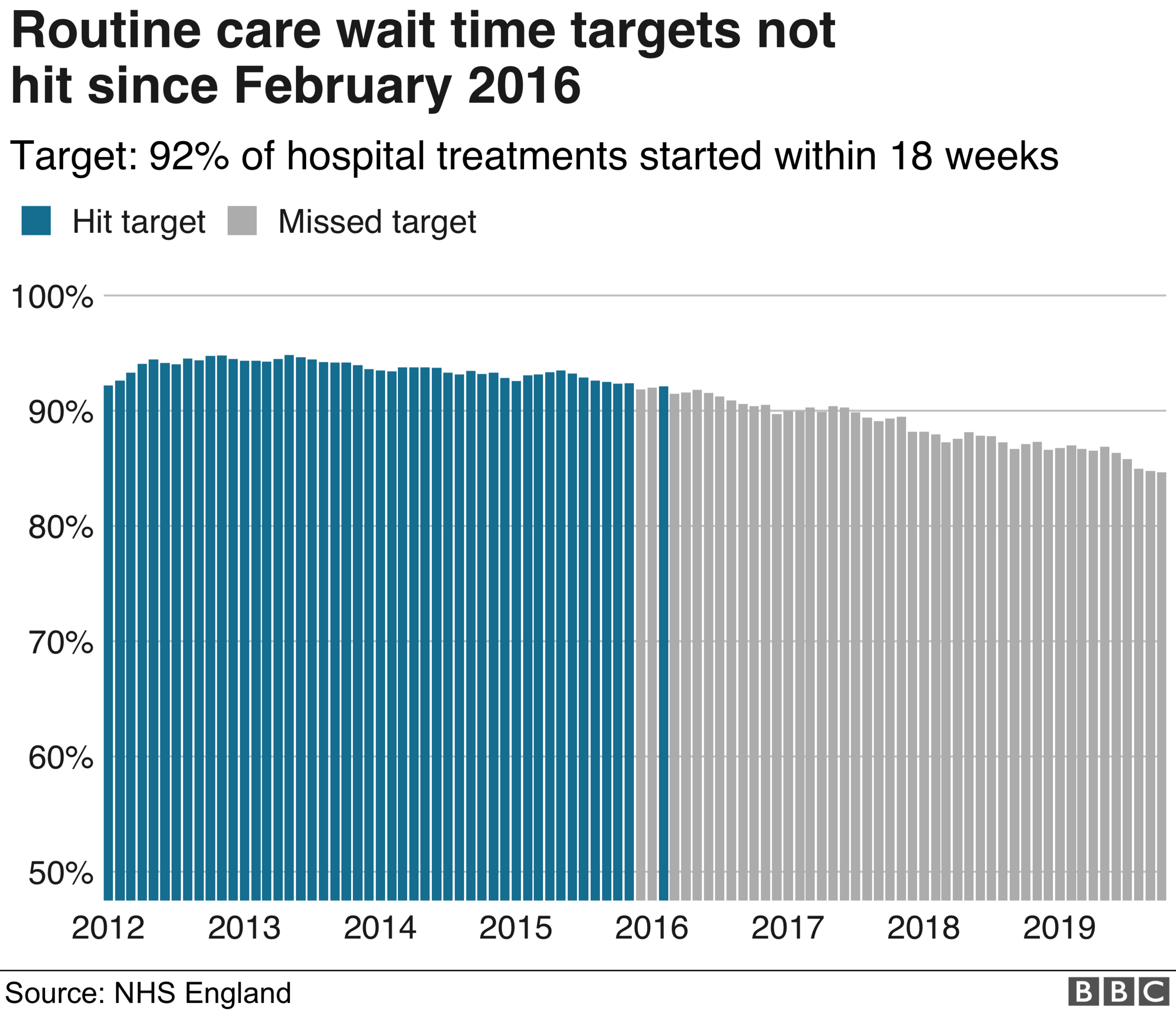
There were 4.45 million people on waiting lists for non-emergency treatment - the most since records began in 2007.
The number waiting more than 18 weeks is also at its worst level since the target was introduced in 2012.
Just 84.7% of patients were waiting less than 18 weeks at the end of October.
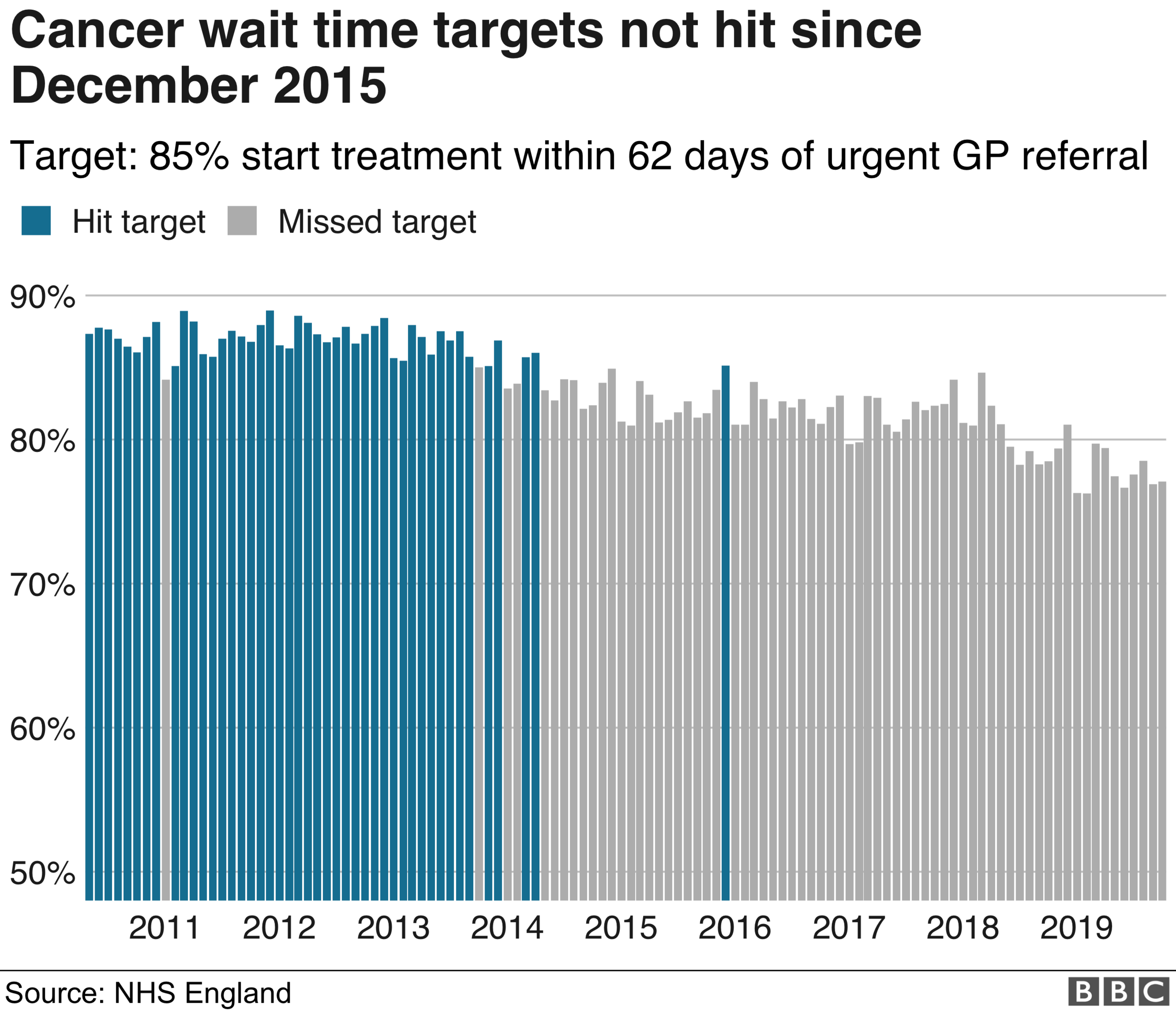
The target to start treating cancer patients within 62 days of an urgent referral is also being missed.
It is now more than three years since any of the flagship targets were hit.
British Medical Association leader Dr Chaand Nagpaul said the performance was "shambolic".
"Day one of the new government and another set of stark NHS performance figures," he said.
"They are not inheriting a problem, they created this problem and the responsibility ultimately lies with them to fix it."
Miriam Deakin, of NHS Providers, which represents managers, said hospitals were full and there had been an early spike in flu and the vomiting bug norovirus, which had added to the pressures.
"This potent mix coming up against an already overstretched service will mean tough choices over winter."
- Published14 November 2019

- Published11 September 2018

- Published4 January 2018
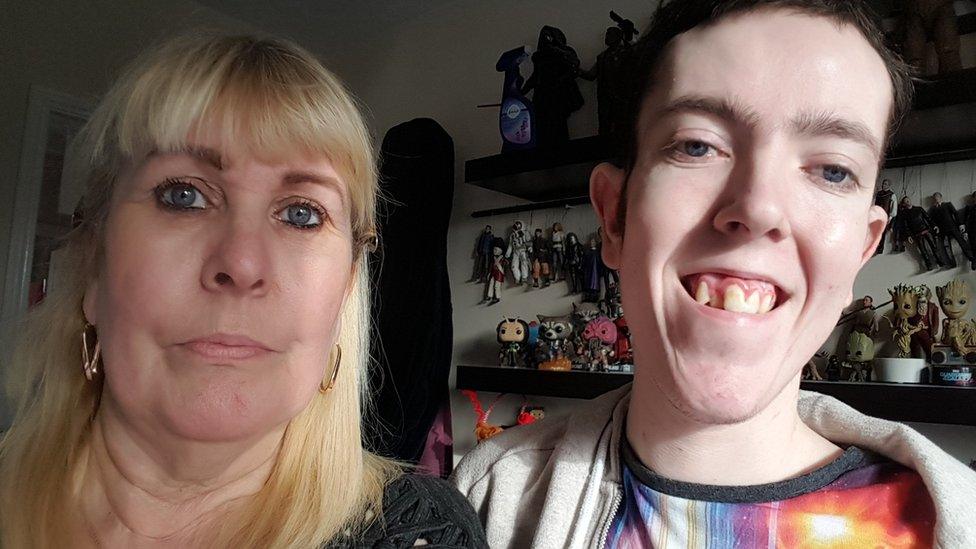
- Published26 December 2017

- Published21 December 2017
